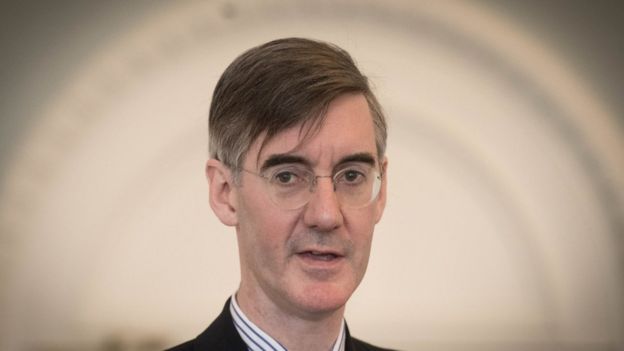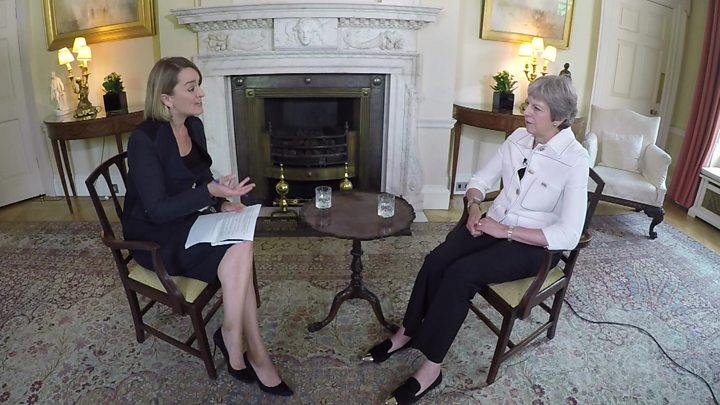
This article is more than
7 year oldThe prime minister held the meeting at Chequers, where the cabinet agreed to support her favoured option.
Mr Johnson used colourful language as he made the argument Mrs May's plan would leave the UK as a "vassal state".
The prime minister said her plan would ensure Brexit is delivered.
Ministers signed up to a plan to create a free trade area for industrial and agricultural goods with the bloc, based on a "common rule book".
They also supported what could amount to a "combined customs territory" at Friday's summit.
Mr Johnson has told colleagues the plan could be a "serious inhibitor to free trade", according to BBC political correspondent Nick Eardley.
The foreign secretary backed the proposals at Chequers despite claiming that defending the plans was like "polishing a turd".
An ally of the prime minister said Mr Johnson's comments were made in a humorous style, and after a dinner Mr Johnson had then paid a rousing tribute to the prime minister.
Friends of Mr Johnson say he is staying in the cabinet to "make the argument for Brexiteers".
Meanwhile the Observer reports that more than 100 entrepreneurs and business leaders regard Mrs May's plan as "unworkable" and "costly and bureaucratic".
Labour leader Jeremy Corbyn said there would have to be a "proper vote" on the government's proposals in Parliament, adding: "Here we are, two years since the referendum and the Government still hasn't produced a white paper on its own negotiating stance."
Shadow Brexit Secretary Sir Keir Starmer earlier said Labour had not ruled out the possibility of a second referendum on Brexit.
Writing in the Mail on Sunday, Conservative MP Andrew Bridgen said the "time has come for a new [Conservative] leader" which he believes should be Brexiteer Jacob Rees-Mogg.
Mr Bridgen called Mrs May's Brexit pledges "a pretence and charade intended to dupe the electorate".
Mr Rees-Mogg warned that "a very soft Brexit means that we haven't left, we are simply a rule-taker".
A briefing being circulated to the European Research Group (ERG) - a group of Eurosceptic Conservative backbench MPs, which Mr Rees-Mogg leads - says the prime minister's plan "would lead directly to a worst-of-all-worlds black hole Brexit".
The document expresses concern the UK would have to follow EU laws and European Court of Justice rulings and would not be able to develop an "effective international trade policy".

Former Conservative leader Iain Duncan Smith told the Sunday Telegraph if the public perceive Mrs May's plan as "continued membership" of the customs union and single market for goods, the government "will suffer the consequences at the next election".
But Mrs May told the Sunday Times: "The only challenge that needs to be made now is to the European Union to get serious about this, to come round the table and discuss it with us."
She said her plan was a "serious, workable proposal" and when people voted to leave the EU, "they wanted to take control of our money, our laws and our borders and that's exactly what we will do".

The prime minister had gathered her 26 cabinet ministers together at her country residence to resolve differences over the shape of the UK's relations with the EU and break the current deadlock with the EU. The proposals will be published in a white paper next week.
The main details from the Chequers statement: